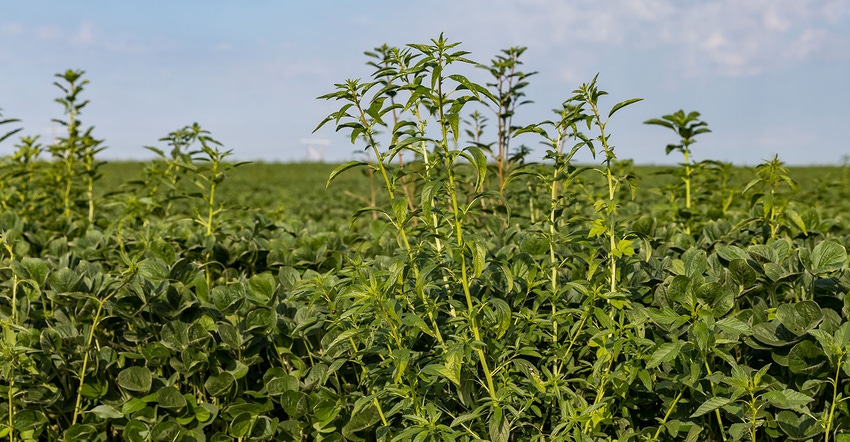April 16, 2021

The Foundation for Food & Agriculture Research (FFAR) is awarding $1.5 million to establish the International Weed Genomics Consortium (IWGC), an ambitious project aimed at improved management of the most intractable species of weeds. The $3 million consortium is supported by $1.5 million in matching funds from industry sponsors.
Large-scale weed control is usually accomplished by spraying expensive herbicides, but weeds can adapt and evolve resistance to such treatments. The IWGC, led by weed scientists at Colorado State University and comprising 15 academic partners across seven countries, is assembling a global community of experts from science and industry to develop genomic tools that fundamentally advance humanity's approach to weeds and crops.
“FFAR is proud to support this new effort to tame the threat of weeds,” said FFAR Executive Director Dr. Sally Rockey. “From genome sequencing to training the next generation of agriculture research scientists, the IWGC shows that new research can be the solution to many agriculture challenges.”
The planned whole-genome approach to advance knowledge of specific weed species is a long time coming, according to project director Dr. Todd Gaines, associate professor of molecular weed science in CSU's Department of Agricultural Biology. "When you think about weeds, what makes them great is they are adapted to the harshest situations," Gaines said. "They are the most cold tolerant, the most salt tolerant, the most heat tolerant."
By applying tools from genomics and molecular biology to advance weed science, weeds’ stress tolerance could be applied to crops, and traditional management strategies could be reduced or retired, Gaines explained.
The IWGC pinpointed 10 initial species of weeds to sequence complete genomes. For example, the group plans to sequence the genome for a type of barnyard grass especially detrimental to rice fields that has grown tolerant to traditional flooding-based management practices.
FFAR’s support is enabling the sequencing of additional species of weeds, including perennial weeds and aquatic varieties, to drive even more fundamental knowledge of weed biology. In particular, it will allow the consortium to look at weed species that are problematic to both conventional and organic producers.
IWGC project manager and CSU research scientist Dr. Sarah Morran called weeds the "wild west of genetics" – which is why weeds are such a respectable and fascinating opponent.
"Yes, we want to help growers deal with weeds, but to me it's more about understanding them, and how we can fit them into more integrated pest management strategies," Morran said. "How can we set up these ecosystems where we can work with them a bit better, if we understand their genetics and understand how they are adapting and working?"
In addition to the genomes, the team is creating user-friendly genome analytical tools and training, particularly to serve early-career weed scientists. Another goal of the consortium is to facilitate collaboration and workforce development within the emerging field of weed science.
Some of that development will take place through relationships with Historically Black Colleges and Universities, including North Carolina A&T State University. Consortium leaders are seeking to increase representation of traditionally underrepresented groups within the academic and industry pipeline of weed science.
The IWGC will complete the 10 weed genomes within three years, in close partnership with sponsoring company Corteva, which is providing the expertise and resources for gold-standard genome assemblies. Corresponding annotations of these assemblies will be led by partners at Michigan State University. That information will be given confidentially to sponsoring companies for one year, and later, uploaded to public databases.
“We’re proud to contribute our expertise in whole-genome sequencing to this important collaboration, which has the potential to yield industry-shifting insights to benefit farmers, consumers and the environment,” said Sam Eathington, chief technology officer at Corteva Agriscience. “Stubborn weeds are among the biggest challenges to farmer productivity. The outcomes of this collaboration will enable us to help farmers tackle those challenges in more precise and planet-friendly ways.”
Results and information will be shared via annual conferences made possible by USDA National Institute of Food and Agriculture funding. The first conference is slated for September 2021 in Kansas City, Missouri.
Source: Foundation for Food & Agriculture Research, which is solely responsible for the information provided and is wholly owned by the source. Informa Business Media and all its subsidiaries are not responsible for any of the content contained in this information asset.
You May Also Like




